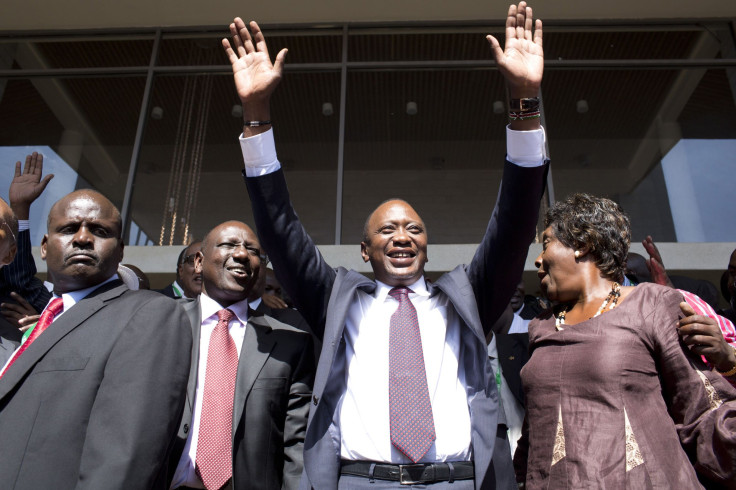President Kenyatta Starts New Term With Promises To Boost Employment, Fight Corruption

Newly elected Kenyan president Uhuru Kenyatta has kicked off his five-year term with some big promises and a small cabinet.
Kenyatta was inaugurated on April 9, and Kenya’s new parliament convened for the first time on Tuesday. The president delivered speeches to mark both occasions, promising that he would work to clamp down on corruption and address widespread unemployment -- the two issues that concern Kenyans most, according to a 2012 Gallup poll.
To tackle the unemployment rate of 40 percent for the general population, Kenyatta promised to divert government funds toward education and youth development.
“Among our youth, unemployment is as high as 70 percent,” Kenyatta said Tuesday, according to the Horn of Africa news outlet Sabahi. “For far too long this, our national resource, has received insufficient attention, and the energy and time of our youth have been wasted through alcohol and drug abuse. We must work together to put measures in place to harness the time and talents of our youth in order to grow our economy.”
The Jubilee Coalition, which Kenyatta leads, has unveiled plans to set aside 32 percent of national spending for education by 2018.
Kenyatta addressed corruption in his speech on Tuesday, according to the Associated Press. Kenya’s parliamentarians -- among the highest-paid politicians on earth -- nonetheless sought a pay increase this year, but Kenyatta noted that government salaries already cost 12 percent of the country's gross domestic product.
The president also rearranged his cabinet so that it contains only 18 ministries, down the from previous administration’s 44.
Kenyatta won a closely fought election in March, narrowly avoiding a runoff against opponent Raila Odinga. There were fears that the contest might lead to violent protests -- five years ago, another close election had exacerbated ethnic differences and erupted into violence that killed more than 1,200 people.
This year’s vote was generally peaceful, but the specter of that violent 2007 election looms large. In 2011, Kenyatta was indicted by the International Criminal Court, or ICC, on charges of crimes against humanity. He and Vice President William Ruto have been accused of backing a militant gang during the worst of the violence in 2007 and 2008. The case has been plagued by delays and other problems. But if it leads to a conviction for Kenyatta while he is in office, it will leave Kenya at risk of instability. Kenyatta has always claimed innocence and is determined to proceed with governance as usual.
© Copyright IBTimes 2025. All rights reserved.






















